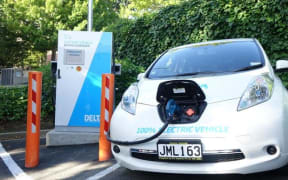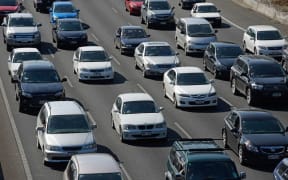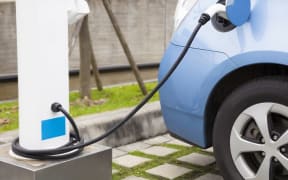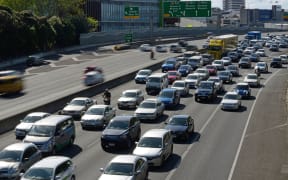Forget waving your fist at that driver hurtling past you in a priority lane - electric vehicles are allowed to zoom down Auckland motorway on-ramps for the next two weeks.
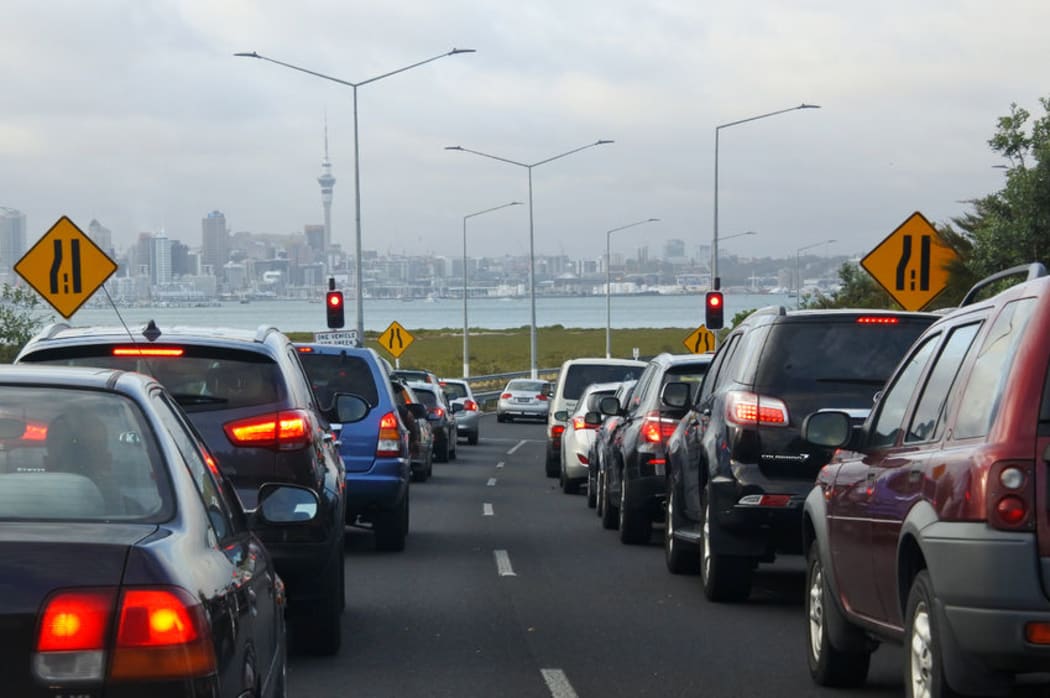
Electric cars can skip the queues and use priority lanes at five Auckland motorway on-ramps for the next two weeks. Photo: 123RF
Starting today, the government trial lets plug-in electic vehicles (EVs) use five motorway on-ramp lanes normally reserved for buses, trucks and high-occupancy vehicles.
Four of the five priority lanes are in the south, as well as the citybound onramp at Lincoln Road on the North-Western Motorway.
The others are the citybound onramps from Coronation Road and Rimu Road onto the South-Western Motorway, and the citybound onramps from the South-Eastern Highway, and from the Mount Wellington Highway, onto the Southern Motorway.
The trial is being championed by Minister of Transport Simon Bridges, himself a driver of an electric car, and being implemented by the New Zealand Transport Agency, but has attracted scepticism from Auckland mayor Phil Goff and council agency Auckland Transport.
Businesses own nearly a quarter of the 1033 electric vehicles registered in Auckland.
Electricity companies Mercury Energy, with 42, and Vector, with 12, will be leaving it up to individual staff to decide whether to use the priority lanes.
Air New Zealand, which said it had around 75 EVs, was not sure how many were based in Auckland.
Air New Zealand was the most bullish about the trial. "We are looking forward to participating in this trial and hope our customers are inspired to consider electric vehicles themselves," the airline said in a statement.
Auckland Transport is known to be unhappy about the trial, and in a submission, posed questions about how clearly motorists would understand which vehicles qualified and called for an "information campaign".
"We note that the period of the trial will not provide any definitive conclusion on the effectiveness on driver behaviour change," the city agency wrote.
Former Auckland Regional Council transport chair Joel Cayford, now a policy analyst with the Planning Institute, said the focus should be on shifting people out of cars, not from fossil-fuelled to electric vehicles.
"The benefit is incredibly marginal. If you were really genuinely seeking a shift in New Zealand to a more sustainable transport economy, you wouldn't start here," he said.
Mr Goff did not favour adding to the number of vehicles in priority lanes.
"The minister's very keen on it. He wants to trial it, fine. That's a decision he's made. Let's see if it works and if it doesn't he'll be the first to put up his hand and say well, 'that didn't work'," said Mr Goff.
NZTA will not be actively monitoring the uptake by electric vehicle users, and there will be no extra policing of vehicles using the on-ramps during the trial.
Group manager for planning and investment Robert Brodnax said the agency would survey owners of electric cars afterwards about their experiences.
"We're also going to be monitoring commentary on Facebook and on social media, and also talking to the main stakeholder groups about their insights - the Bus and Coach Association, and freight operators," said Mr Brodnax.
The by-law allowing the new category of vehicles to use the priority lanes for the trial will be extinguished the day after the trial ends on 20 March.
The government expects to have new regulations in place by 1 July, giving local bodies the discretion to allow electric vehicles in a range of priority or bus lanes.

